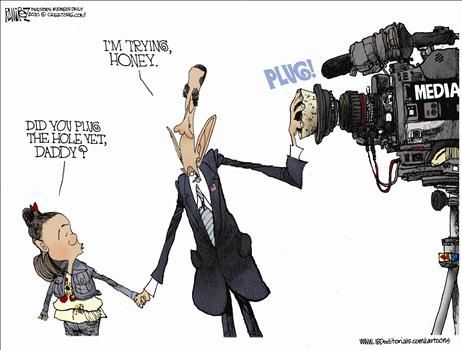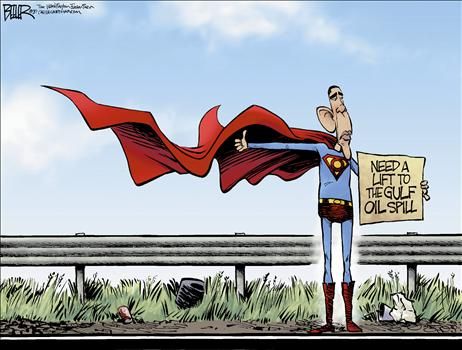Michele Bachmann
Dennis Prager Talks About the Left’s Hatred of Conservative Women and Specifically, Michele Bachmann
Baltimore Sun Lays Into Rachel Maddow
Some on the left have been crying foul at CNN’s decision to air live Rep. Michele Bachmann’s response to the president’s State of the Union address Tuesday night. None have been more vocal than MSNBC libtalker Rachel Maddow.
One media critic had enough. On Thursday, the Baltimore Sun’s David Zurawik laid into Maddow’s criticism, saying it derives from “the mentality of a lockstep party member, not a journalist.” Zurawik’s gripe was Maddow’s insistence that because Bachmann was not officially representing a political party, her speech should not have been given comparable treatment to the president’s or to Rep. Paul Ryan’s Republican response.
Journalists “don’t let political parties tell us who we should and shouldn’t cover,” Zurawik added. “I have a West Highland terrier named Bugsy who has better journalism credentials and chops than you do,” he quipped.
…(click here to see video of Maddow)…
Here is the portion of the Baltimore Sun article that I think sums up the corrupted thinking at MSNBC and specifically Rachel “Madcow.” Take note “Z on TV” references the video, which can be seen in the link above:
….The essence of my critique: The Tea Party has played a major role in shaping the new Congress, and it has already had a significant effect on American life. Given that, if you aren’t sure about whether or not to cover, you err on the side of inclusion — not exclusion. Provide citizens with as much information as you can so that they can make the best decisions about their lives.
But check out the video MSNBC thinks I should see and note that Maddow’s argument boils down to this: Bachmann should not have been covered because she was not “ordained” by the Republican Party as its official responder.
This is the mentality of a lockstep party member, not a journalist. Unless the party “ordains” someone to speak, they shouldn’t be covered by the press, in Maddow’s thinking.
Memo to Maddow: That’s not the way journalists think. We bring citizens as much information as we can whether THE PARTY ordains it or not. Just like we don’t let the executive branch tell us which news operation is a “legitimate” journalistic enterprise, and which isn’t, we don’t let political parties tell us who we should and shouldn’t cover. Journalism 101 at Goucher College where I teach.
CNN was right in covering Bachmann. And by the way, there are interns at CNN’s Washington bureau who have better journalism credentials than you do, Ms. Party Operative Think. In fact, I have a West Highland terrier named Bugsy that has better journalism credentials and chops than you do….
So easy a child should get it.
Paul Ryan and Michele Bachmann Respond
Nobel Prize Winning NYTs Journalist-Paul Krugmans Language Gap
This is a great story from NewsBusters. It shows how Nobel Prize winner can lie to his readers, forgetting any semblance of real journalism. You know, I think journalism needs a good dose of what hermeneutics teachers. In fact, may I say this generation of graduates have been taught how not to think.
Michele Bachmann was given the Krugman treatment in a column on Monday. Krugman had this to say:
And it’s the saturation of our political discourse — and especially our airwaves — with eliminationist rhetoric that lies behind the rising tide of violence.
Where’s that toxic rhetoric coming from? Let’s not make a false pretense of balance: it’s coming, overwhelmingly, from the right. It’s hard to imagine a Democratic member of Congress urging constituents to be “armed and dangerous” without being ostracized; but Representative Michele Bachmann, who did just that, is a rising star in the G.O.P.
Krugman defined “eliminationist rhetoric” in this context as “suggestions that those on the other side of a debate must be removed from that debate by whatever means necessary.” Bachmann’s statement was the only example he provided.
But true to form, Krugman quoted Bachmann out of context, and completely turned around the meaning of her statement in the process. What did she actually say? Here’s PowerLine’s John Hinderaker:
As it happens, I–unlike Krugman–know all about Michele’s “armed and dangerous” quote, because she said it in an interview with Brian Ward and me, on our radio show. It was on March 21, 2009. The subject was the Obama administration’s cap and trade proposal. Michele organized a couple of informational meetings in her district with an expert on global warming and cap and trade, and she came on our show to promote those meetings. She wanted her constituents to be armed with information on cap and trade so that they would understand how unnecessary, and how damaging to our economy, the Obama administration’s proposal was. That would make them dangerous to the administration’s left-wing plans…
For the record, here is what Michele said: “I’m going to have materials for people when they leave. I want people armed and dangerous on this issue of the energy tax, because we need to fight back.” Yes, that’s right: she wanted Minnesotans to be armed with “materials”–facts and arguments–not guns. If this is the best example of “eliminationist rhetoric” that the far left can come up with, you can see how absurdly weak the claims of Krugman and his fellow haters are.
Bachmann wanted her constituents to be engaged and knowledgable in the political process. This, apparently, was the only example Krugman could come up with, and it doesn’t actually support his point.
I think seminary grads have a LOT to offer these political “mavens” (really, red herrings). For instance, what does the typical Bible student learn about how to interpret properly. Here is some of a larger paper I wrote a while ago entitled, “Biblical Inerrancy Defined,” on this topic:
The internal test utilizes one Aristotle’s dictums from his Poetics. He said,
They [the critics] start with some improbable presumption; and having so decreed it themselves, proceed to draw inferences, and censure the poet as though he had actually said whatever they happen to believe, if his statement conflicts with their notion of things…. Whenever a word seems to imply some contradiction, it is necessary to reflect how many ways there may be of understanding it in the passage in question…. So it is probably the mistake of the critics that has given rise to the Problem…. See whether he [the author] means the same thing, in the same relation, and in the same sense, before admitting that he has contradicted something he has said himself or what a man of sound sense assumes as true.
LANGUAGE GAP
…Consider how confused a foreigner must be when he reads in a daily newspaper: “The prospectors made a strike yesterday up in the mountains.” “The union went on strike this morning.” “The batter made his third strike and was called out by the umpire.” “Strike up with the Star Spangled Banner.” “The fisherman got a good strike in the middle of the lake.” Presumably each of these completely different uses of the same word go back to the parent and have the same etymology.[1] But complete confusion may result from misunderstanding how the speaker meant the word to be used…. We must engage in careful exegesis in order to find out what he meant in light of contemporary conditions and usage.
[….]
[….]
Eight Rules of Interpretation ~ …the Eight Rules of Interpretation used by legal experts for more than 2500 years.
1) Rule of Definition: Define the term or words being considered and then adhere to the defined meanings.
2) Rule of Usage: Don’t add meaning to established words and terms. What was the common usage in the cultural and time period. When the passage was written?
3) Rule of Context: Avoid using words out of context. Context must define terms and how words are used.
4) Rule of Historical background: Don’t separate interpretation and historical investigation.
5) Rule of Logic: Be certain that words as interpreted agree with the overall premise.
6) Rule of Precedent: Use the known and commonly accepted meanings of words, not obscure meanings for which there is no precedent.
7) Rule of Unity: Even though many documents may be used there must be a general unity among them.
8) Rule of Inference: Base conclusions on what is already known and proven or can be reasonably implied from all known facts.
- [1] Etymology: “the study of the origins of words or parts of words and how they have arrived at their current form and meaning” (Encarta Dictionary).
Paul Krugman could use a fat dose of what journalism SHOULD BE, maybe by going to a seminary.
Chris Mathews-Media Elitist Showing His Biases

Recent News Stories Put To Artistic Prose (Immigration, Oil, Sovereignty)
(These are old stories I decided to keep in my “repairing” old posts)
This rash politicization of education is being met with resistance, but here’s what supporters of the proposed curriculum had to say:
According to its press release, “The Los Angeles Board of Education also requested that Superintendent Ramon Cortines ensure that civics and history classes discuss the recent laws with students in the context of the American values of unity, diversity and equal protection for all people.”
“America must stand for tolerance, inclusiveness and equality,” said Board President Monica García, according to the release. “In our civics classes and in our hallways, we must give life to these values by teaching our students to value themselves; to respect others; and to demand fairness and justice for all who live within our borders. Any law which violates civil rights is un-American.”
Very telling that “rule of law” was not one of the “American values” mentioned.

Minnesota Congresswoman Michele Bachmann was quoted in Politico hammering the administration for pulling away from Israel.
From Politico:
“We have to ask if the Obama administration remains committed to the state of Israel and the right of Israel to exist and defend herself. The Obama administration, through its word and its actions, has been sending the world mixed signals at best.”
She continued:
“It appears that from the time the Obama administration came into office they have been stepping away from Israel…”
(Michele Bachmann strong words for Obama over lack of support for Israel)
The Dutch government is condemning Israel’s defensive action against the Hamas/Al Qaeda terrorist vessel that entered its waters. However, one Dutch politician is standing against the tide.
From the Dutch News, June 1:
MPs from across the political spectrum, even those traditionally supportive of Israel, have said they were shocked by Israel’s actions.
However, PVV MP Geert Wilders said it is ‘cheap’ to attack Israel. ‘I am certainly not going to make a cheap attack on Israel by howling in the woods with the rest of the wolves,’ he told tv show Nova.
Israel was fully justified in entering the ships to see if they were also carrying weapons, he said.
(In the Netherlands, Geert Wilders stands virtually alone in defense of Israel flotilla attacks)
President Barack Obama Wednesday sought to break the political siege imposed by the US oil disaster, lacerating Republicans for gutting corporate regulation and exploding deficits.
The GOP immediately blasted back, accusing the president of trying to distract attention from the ongoing catastrophe in the Gulf of Mexico.
“Good speeches can’t improve failing policies,” said House Republic Whip Eric Cantor. “America needs more than speeches and words — we need action to begin to erase our deficits and free our children from our debt.”….
(GOP Blasts Obama for Attack Speech as Spill Worsens in Gulf)
Many reasons, but this one goes unmentioned: Environmental chic has driven us out there. As production from the shallower Gulf of Mexico wells declines, we go deep (1,000 feet and more) and ultra deep (5,000 feet and more), in part because environmentalists have succeeded in rendering the Pacific and nearly all the Atlantic coast off-limits to oil production. (President Obama’s tentative, selective opening of some Atlantic and offshore Alaska sites is now dead.) And of course, in the safest of all places, on land, we’ve had a 30-year ban on drilling in the Arctic National Wildlife Refuge.
So we go deep, ultra deep — to such a technological frontier that no precedent exists for the April 20 blowout in the Gulf of Mexico.
There will always be catastrophic oil spills. You make them as rare as humanly possible, but where would you rather have one: in the Gulf of Mexico, upon which thousands depend for their livelihood, or in the Arctic, where there are practically no people? All spills seriously damage wildlife. That’s a given. But why have we pushed the drilling from the barren to the populated, from the remote wilderness to a center of fishing, shipping, tourism and recreation?
Not that the environmentalists are the only ones to blame. Not by far. But it is odd that they’ve escaped any mention at all.
The other culprits are pretty obvious. It starts with BP, which seems not only to have had an amazing string of perfect-storm engineering lapses but no contingencies to deal with a catastrophic system failure.
However, the railing against BP for its performance since the accident is harder to understand. I attribute no virtue to BP, just self-interest. What possible interest can it have to do anything but cap the well as quickly as possible? Every day that oil is spilled means millions more in losses, cleanup and restitution….
….Well, when you anoint yourself King Canute, you mustn’t be surprised when your subjects expect you to command the tides.
- 2 of 2
- « Previous
- 1
- 2







